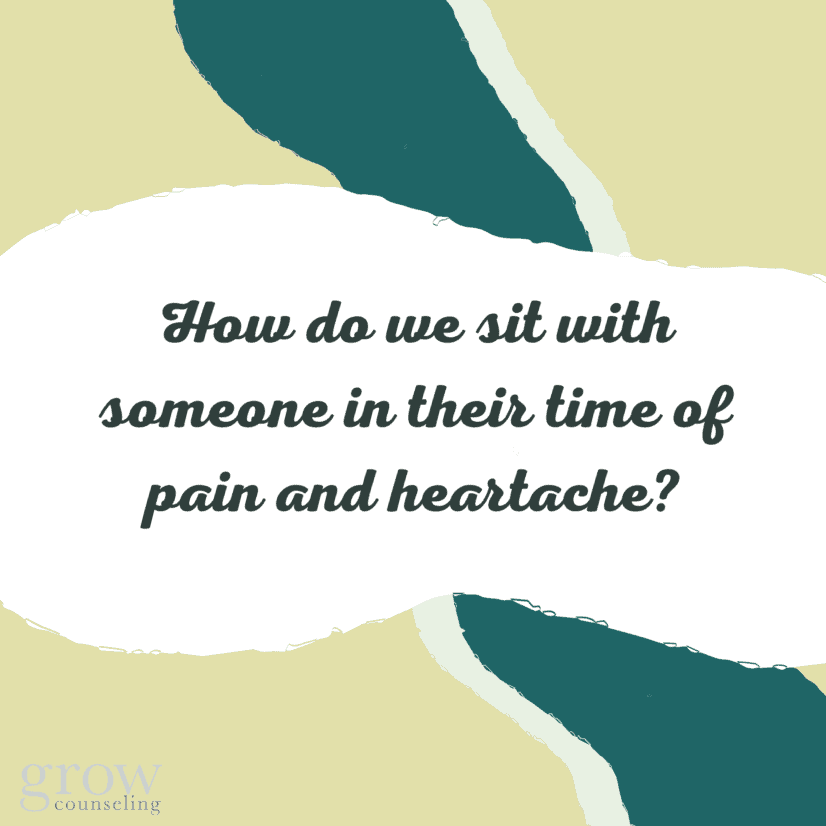Many of us struggle to know how to respond when someone we care about is upset. We don’t want to say the wrong thing, we don’t know what to say in general, or we may not want to address the situation at all. Something I often come across in my work with clients, is that when someone we are in relationship with is having a hard time, or experiencing big, or difficult emotions, the immediate desire that arises within us is to “fix it”.
The tears, or the difficult emotions they are experiencing feel like an emergency—we see a fire, and we immediately feel the need to put it out.
It is easy in this moment to believe the desire to end the suffering is only about the other person, and our care for them—and often, that is a large part of the equation! We care about the person, and we wish we could alleviate their pain.
The part of the equation that is often overlooked is when our desire to “fix it” stems from our own reactions and the uncomfortable emotions that arise in us.
It can be painful to sit with others in their pain. So many of us have been taught to eradicate negative emotion at all costs, instead of accepting that they are a part of life, and that when we feel and address them, they will pass.
In order to sit with others more effectively, there are a couple things we can do:
- We can recognize that the presence of emotion does not immediately constitute an emergency—they (or we!) may need to have their moment, and trying to move on from it immediately may feel unhelpful and dismissive.
- We can practice sitting with and creating space for our own emotions. As we learn to recognize and tolerate the feelings and sensations that arise in us across a spectrum of different emotions, we will begin to learn that we can handle more than we thought we could, and may even begin to see the benefits of knowing how we feel. This will help us as we sit with others, knowing that the waves of emotion come and go, and that riding them safely is possible.
Presence is a powerful thing, and is oftentimes the best response to a loved one that is hurting—allowing them to know that you are with them, there is space for their emotion, and that is okay.
Written by: Courtney Hintermeyer

